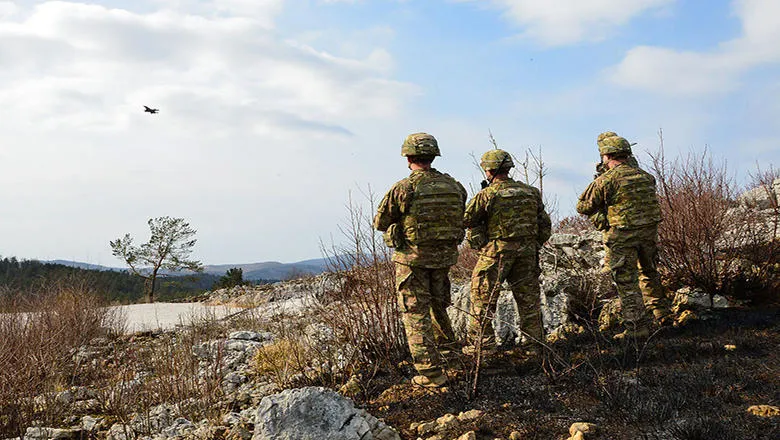06 July 2018
Elite bargains and political deals
A new analysis by Dr Christine Cheng, Lecturer in International Relations in the Department of War Studies, reveals that policy-makers need to re-think their approach to peace building in the aftermath of conflict.

A new analysis by Dr Christine Cheng, Lecturer in International Relations in the Department of War Studies, reveals that policy-makers need to re-think their approach to peace building in the aftermath of conflict.
‘Elite bargains’, defined as discrete agreements or a series of agreements that explicitly re-negotiate the distribution of power and the allocation of resources between select, high profile groups in a society –play a crucial role in managing and shaping post-war transitions. Yet the report reveals that too often, elite bargains and peace deals are struck without an adequate understanding of power dynamics and the fundamentals of culture, politics and security that existed pre-war and during the conflict.
It seems basic that those involved in conflict stabilisation and peace negotiations in a country should be aware of the underlying political and cultural situation. But, Dr Cheng says, this awareness has come with the benefit of hindsight, after many unsuccessful interventions. “Policy-makers and scholars pay too much attention to formal institutions and processes and not enough to informal actors and institutions. We have intervened in conflict situations without even a rudimentary appreciation of these dynamics”, she comments.
To be successful, any deal struck must recognise political and security realities. “Violent conflict will only stabilise, when the distribution of political and economic benefit is consistent with the underlying configuration of power,“ suggests the report.
The independent analysis was commissioned by the UK Government’s Stabilisation Unit, and coauthored by Dr Cheng and two colleagues from SOAS, Pat Meehan and Jonathan Goodhand. The researchers analysed 21 case-studies, commissioned by the Stabilisation Unit and written by country specialists.
Analysis of the case-studies reveal some ‘hard truths’ for policy-makers. These show that there are difficult trade-offs to negotiate in post-conflict transitions. Commenting on these trade-offs, Dr Cheng said: “policy on areas of armed conflict and war-to-peace transitions is still drawn up as if all good things go together, when clearly, they don’t.”
For example, although stable peace after conflict is more likely when elite bargains follow pre-existing configurations of power, this is also most likely to lead to ‘elite capture’: the continuing monopolisation and unfair distribution of resources in society.
If instead, there is a more radical break with the past, with new structures that don’t follow pre-war and conflict distributions of power, this is most likely to lead to progressive peace, with inclusive development. However, this is also more likely to lead to a return to armed conflict, due to the misalignment between formal peace and the underlying political settlement.
Moving too quickly to promote inclusive development and alleviate poverty can destabilise elite bargains, which are founded on providing elites with more stable and predictable power, political clout and access to economic resources.
The report urges international governments and external influencers to recognise these difficulties when negotiating peace and to resist the urge to push too hard, too quickly for transformation in post-conflict societies. “Ending war is more complicated than just negotiating a peace agreement” says Dr Cheng. Post-conflict transitions to a developmental peace take time, sometimes decades, beyond the short termism of the ‘news cycle’. Collectively, the report argues, the international community needs to recalibrate its expectations of peace agreements and elite bargains so that aims and timescales are more realistic.
The report of the Elite Bargains and Political Deals project, “Securing and Sustaining Elite Bargains that Reduce Violent Conflict” was launched at Chatham House on 14 June by Alistair Burt MP, Minister for the Middle East and for International Development.
Dr Christine Cheng discusses the key findings of the research and its implications for policy in a War Studies Podcast (8 June 2018).

